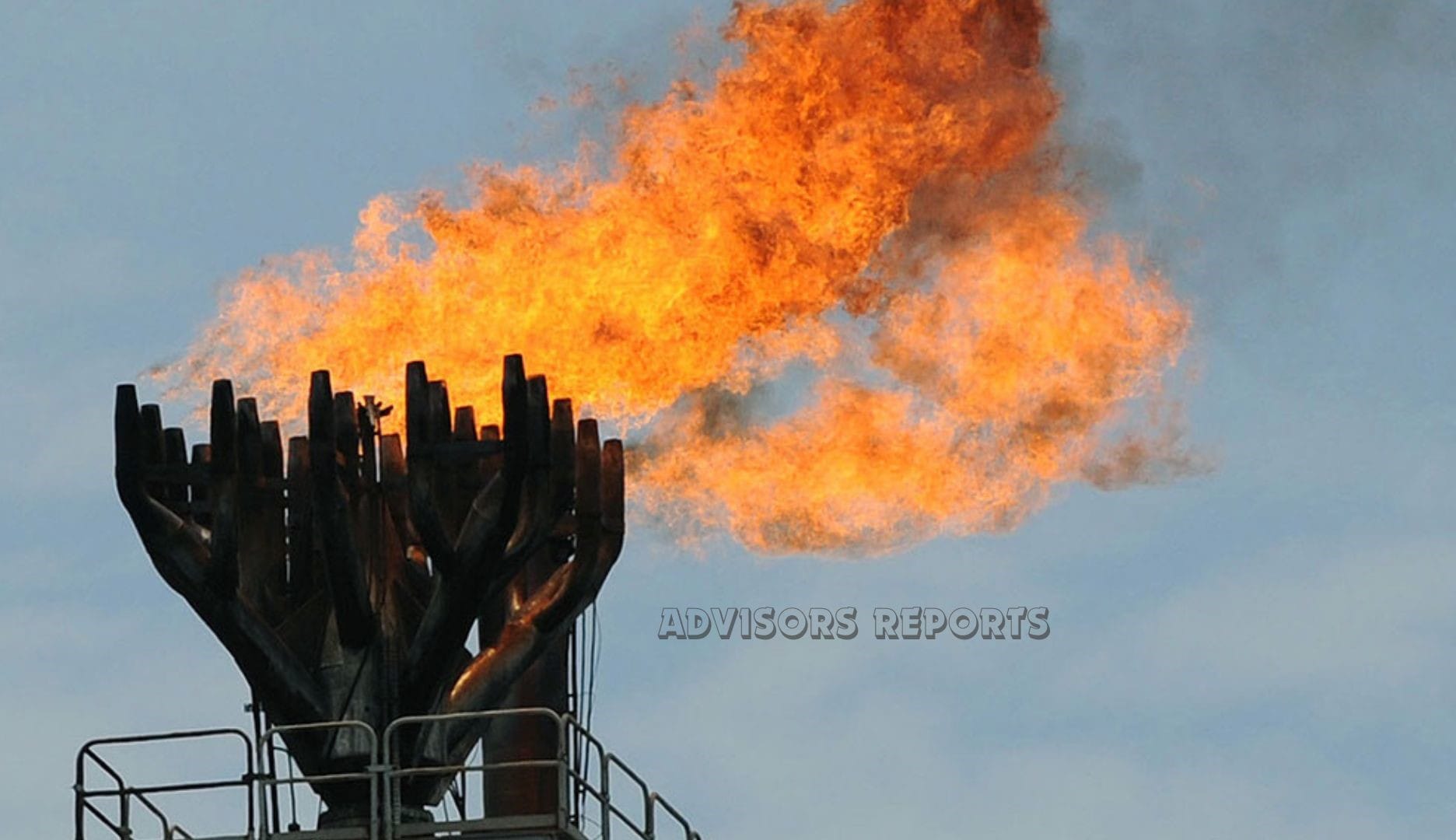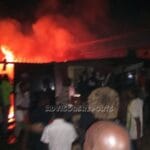Oped by Jerome-Mario Utomi
The harrowing reality of Ubeji Community serves as a poignant reminder of the human cost associated with industrial practices such as gas flaring. It is incumbent upon President Tinubu’s government to demonstrate unwavering resolve and genuine concern by addressing this pressing issue with the utmost urgency.
The fate of the Ubeji residents hangs in the balance, and their plight should galvanize the authorities to translate their anti-gas flaring rhetoric into tangible and life-saving interventions. Anything short of immediate and decisive action would not only be a disservice to the people of Ubeji but also a stark indictment of the government’s commitment to environmental and public health protection.
Again, RT. Hon. (Elder) Sheriff Oborevwori, the Executive Governor of Delta state, has a solemn duty to uphold the security and prosperity of the people. However, the distressing state of affairs in Ubeji community, one of the Governor’s key constituencies, starkly contradicts these fundamental obligations.
The pervasive and intolerable pollution resulting from the alleged gas flaring by a specific organization demands immediate and concerted action from the state’s highest office.
It is imperative that Governor Oborevwori acknowledges and addresses this pressing issue to honor his commitment to the well-being of the citizens and the environment.
Aside from the awareness that the community have been suffering from the gas flaring pollution for decades and the entire environment and ecosystem destroyed because the flaring is an everyday action as it never goes off at all, a visit to the community reveals a people faced with increased socioeconomic difficulties with no record of survival.
Though the community has not vanished physically, but many of the residents have been sacked by the pollution and businesses within the space destroyed. Some families decimated and dispersed. Those that choose to stay back in the community have been ‘absorbed’ by the pollution. They no longer enjoy economic, social and healthy progress that flows from good governance and social cohesion. Their lives are now fraught with uncertainty!
Another resident of Agberuku Crescent, Ubeji Community, according to media reports stated, ‘’The flaring from the company is severely disturbing us. In my house, just like elsewhere on the neighbourhood, you will see the black carbon smeared all over the place. The heat from that facility is also disturbing us.It’s a never-ending cycle,” “We paint our houses, and it blackens again. How long can we keep up?”
If above description is a challenge, the next comment from another resident amply qualifies as a crisis.
‘’My wife too happens to be a BP patient as a result of this gas flaring. When I took her to the hospital, the doctor asked me if I stay in an environment with questionable activities and I answered in the affirmative. Consequently, he advised that I should relocate her away from there and that was how my family left.
‘’For about four or five years now that they have been away from here, none of them has called to report any health challenge. When they were here, you will find the soot even in the nostrils of the children when they wake up in the morning. Everything is coated with soot.
“Our health is at stake here. We live in constant fear of what this pollution is doing to us and our children. Something must be done.”
‘’I have stopped drinking water from my house. I strictly take bottled water which I carry everywhere I go. ‘’There was a time I kept experiencing a runny stomach. I kept going to the hospital, not for malaria, but for different health issues. Then, the doctor asked that I should check what I eat as I might be frequently poisoned.
So, I decided to check my kitchen and discovered that every wipe on my utensil; pots, cups, spoons, plates and surfaces was filled with soot. This meant that everything we eat is soot. ‘’There was a time I was stooling for three months straight. As you can see, I have a runny nose which has refused to abate.
It is always like this all year long, from January to December. To breathe is a problem. ‘’If I cook food, I have to cover it immediately because if I don’t… Even the lead of the pots, when you wipe it, you will see the black carbon.
We are not safe. Sometimes, we see some strange reactions on our skins. We go the extra mile to treat ourselves and seek medical attention. We are indeed strong as Africans, but this is beyond us. I keep reacting to a certain allergy. I keep sneezing and even if you come back in the next three months, I am still sneezing.
So, I am on a steady dose of Vitamin C. It got to a point that I thought that the Nigerian brands were not effective, I had to bring in Vitamin C from Canada, but it didn’t change anything’’ he concluded.
Indeed, while Nigeria and Nigerians persevere to encounter gas flaring in the country in spite of the enormous health and economic woes inherent, this piece on its part believed and still believe that time has come for the Federal Government to ensure that operators in the nation’s crude oil and sector comply fully with all the enabling laws in the country prohibiting gas flaring.
The reason is not farfetched. Ubeji Community in Warri, Delta state is, but just one out of hundreds of communities in the region suffering similar fate.
There are countless examples.
A tour by boat of creeks and coastal communities of Warri Southwest and Warri North Local Government Areas of Delta state will amply clarify this position. Another journey by road from Warri via Eku-Abraka to Agbor, and a similar trip from Warri through Ughelli down to Ogwuashi Ukwu in Aniocha Local Government of the state, shows an environment where people cannot properly breathe as it is littered by gas flaring points.
Again, the President Tinubu led Federal government must ensure that justice is delivered to the good people of Ubeji Community and others within the region because gas flaring is an action taken by the operators based on economic gains as against human health and safety consideration.
Take as an illustration, from what experts are saying, the major reason for flaring of gasses is that when crude oil is extracted from onshore and offshore oil wells, it brings with it raw natural gas to the surface and where natural gas transportation, pipelines, and infrastructure are lacking.
ln the case of Nigeria, this gas is instead burned off or flared as a waste product as this is the cheapest option. This has been going on since the 1950s when crude oil was first discovered in commercial quantities in Nigeria.
Aside from the economic and health loses arising from gas flaring, another important reason why the Federal government must rise up to this clarion call using Ubeji Community as a case study, is that for a very long time, the nation Nigeria have been on this particular case without tangible result.
Successive Federal Governments made what could be best described as mere declaration of intent without political will to enforce such laws.
In 2016, President Muhammadu Buhari led administration enacted Gas Flare prohibition and punishment), an act that among other things made provisions to prohibit gas flaring in any oil and gas production operation, blocks, fields, onshore or offshore, and gas facility treatment plants in Nigeria.
On Monday 2nd.September 2018 Dr. Ibe Kachikwu, Minister of State for Petroleum (as he then was) while speaking at the Buyers’ Forum/stakeholders’ Engagement organized by the Gas Aggregation Company of Nigeria in Abuja, among other things remarked thus; ‘I have said to the Department of Petroleum Resources, beginning from next year (2019 emphasis added).
“We are going to get quite frantic about this (ending gas flaring in Nigeria) and companies that cannot meet with extended periods –the issue is not how much you can pay in terms of fines for gas flaring, the issue is that you would not produce. We need to begin to look at the foreclosing of licenses,” Kachikwu said.
That threat has since ended in the frames as the Minister did little or nothing to get the threat actualized.
The administration also launched the now abandoned National Gas Flare Commercialization Programme (NGFCP, a programme, according to the Federal Government aimed at achieving the flares-out agenda/zero routine gas flaring in Nigeria by 2020.
Again, like a regular trademark, it failed.
Away from Buhari’s administration, in 1979, the then Federal Government in similar style came up with the Associated Gas Re-injection Act which summarily prohibited gas flaring and also fixed the flare-out deadline for January 1, 1984. It failed in line with leadership philosophy in the country.
Similar feeble and deformed attempts were made in 2003, 2006, and 2008.
In the same style and span, precisely on July 2, 2009, the Nigerian Senate passed a Gas Flaring (Prohibition and Punishment) Bill 2009 (SB 126) into Law fixing the flare-out deadline for December 31, 2010- a date that slowly but inevitably failed.
Not stopping at this point, the FG made another attempt in this direction by coming up with the Petroleum Industry Bill which fixed the flare-out deadline for 2012. The same Petroleum Industry Bill (PIB) got protracted till 2021 when it completed its circle and was subsequently signed into law by President Buhari, as Petroleum Industry Act (PIA).
Despite this vicious movement to save the industry, the environment and its people, the Niger Delta challenge remains.
Utomi Jerome-Mario is the Programme Coordinator (Media and Policy), Social and Economic Justice Advocacy (SEJA), Lagos. He could be reached via;jeromeutomi@yahoo.com/08032725374.




